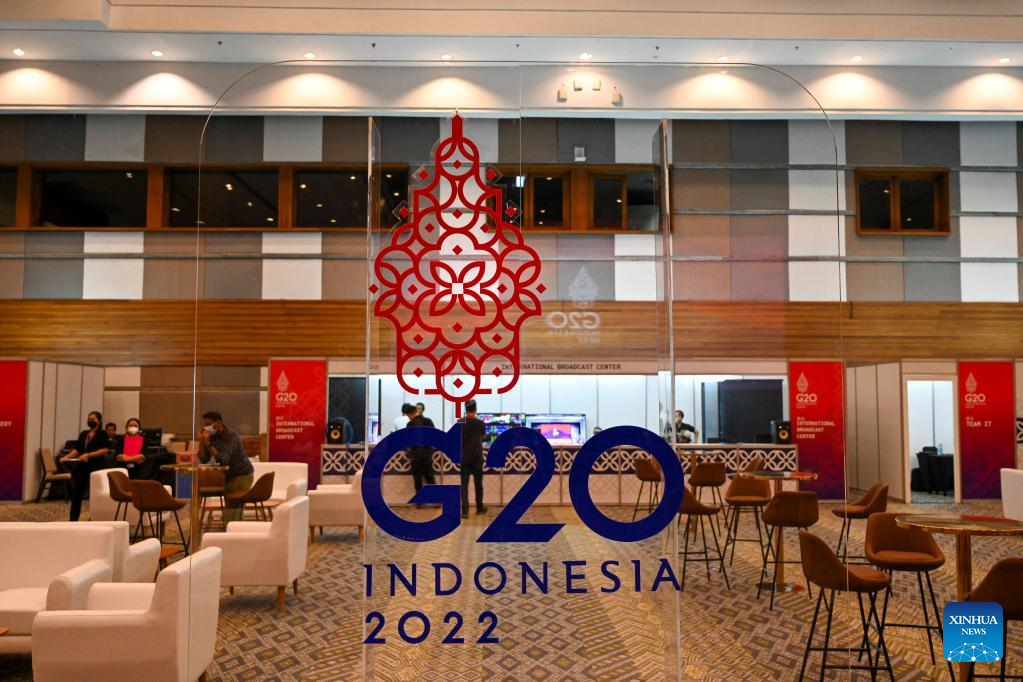
This photo taken on Nov 12, 2022 shows an interior view of the media center for the 17th Group of 20 (G20) Summit in Bali, Indonesia. [Photo/Xinhua]
As an important platform for global coordination on economic and development policies, the G20 Summit brings together the leaders of the most influential economies in the world.
The G20 members represent two-thirds of the world population, account for more than 80 percent of the world's gross domestic product and 75 percent of international trade. Hence, by shoring up shared political will, the G20 leaders can make concerted efforts to jointly and effectively respond to the pressing challenges facing the world and work together to secure a global economic recovery and prosperity, as was demonstrated during the global financial crisis.
That the necessary unity has been found wanting in the past few years has allowed some of the global ills to intensify and others to fester and suppurate. President Xi Jinping's intensive diplomacy in Bali this week was a rallying call for the G20 countries, and the international community as a whole, to stand together and face the risks and challenges. Conducting intensive meetings with an array of world leaders on the sidelines of the summit, he has sought to bridge differences, foster mutual understanding and create a more enabling atmosphere for cooperation.
While Xi's meeting with US President Joe Biden on Monday, their first in-person talks since the latter took office in January 2021, naturally grabbed global attention given the tensions between the world's two largest economies, the Chinese leader was very active in talking to other attendees at the summit in an effort to foster agreement on affirmative action to replace division with unity, confrontation with cooperation, and exclusion with inclusiveness.
In the process, Xi made clear China's stance on the Ukraine crisis, which has been subject to some distortion, stressing the urgency for de-escalation, a cease-fire and peace talks, and the imperative of preventing any use of nuclear weapons.
Deepening economic cooperation among Asia-Pacific countries has featured prominently in Xi's conversations with leaders from the region, including Indonesian President Joko Widodo, Republic of Korea President Yoon Suk-yeol and Australian Prime Minister Anthony Albanese. And Xi's diplomatic overtures over the past few days have either cemented old friendships or struck up a rapport to ease previously troubled relations, which has renewed confidence that regional stability can be maintained.
It is evident that all countries are having a hard time to a greater or lesser degree in the face of the current headwinds. Xi's message was that by rejecting beggar-thy-neighbor practices and the building of small yards with high fences and by joining hands instead, the world can find ways to tide over difficulties and create the prospects for a brighter future.


